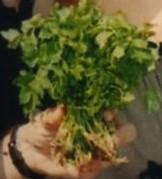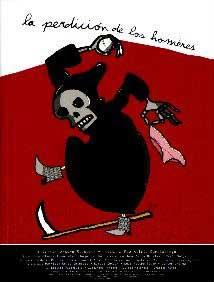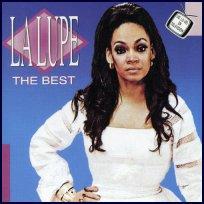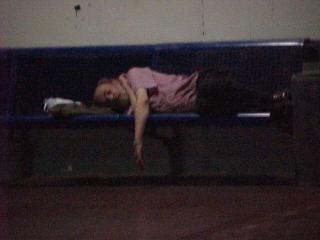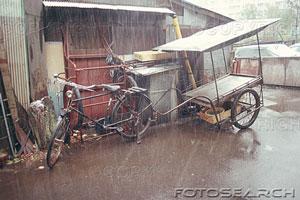O Dieguito 'El Cigala' στην "μεγάλη" του εβδομάδα
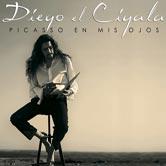
Σήμερα κυκλοφορεί το νέο album του El Cigala, "Picasso en mis ojos", εγκαινιάζεται η επίσημη ιστοσελίδα του www.diegoelcigala.com και εκείνος τραγουδά στο Royal Albert Hall στο Λονδίνο σαν κεντρικό "αστέρι" σε μία μεγάλη νύχτα του flamencο.
Καθόλου άσχημα, μία γεμάτη εβδομάδα...
“I really needed this flamenco album”Silvia Calado. Madrid, September 2005
Diego el Cigala returns to flamenco. After selling nearly a million copies of ‘Lágrimas negras’ worldwide, he has taken aim at leading the newly-gained audience to his terrain. To do so, he has sought inspiration in Pablo Picasso, “the most flamenco of all the painters from last century”, and has surrounded himself with “the cavalry”. And the thing is that there is a battalion in charge of the music commanded by no less than Paco de Lucía and Tomatito. The Madrilenian cantaor is satisfied with this much-awaited record, whose production he shared with Paquete during six intense weeks of recording and anecdotes in his own studio. The parade of musicians who stayed at his house have left behind scores of anecdotes, besides one Diego el Cigala thrilled with everyone's involvement. ‘Picasso en mis ojos’ was a necessary album.
Why Picasso?
I didn't want a tribute to Picasso where I'd end up tired of it. I just wanted to put out a message, to do a little tribute and for people to have to check it out by listening to it. And that's on four or five tracks. The other five are about how I view Picasso. That's all.
Did you need to get back to flamenco?
Yeah, I needed this flamenco album. Eight hundred thousand copies of ‘Lágrimas negras’ have been sold. And all those people who've heard it have to get into ‘Picasso en mis ojos’. I've got to teach those people to listen to my records. This isn't going to be just (he sings some lyrics from ‘Lágrimas negras’): “En la vida hay amores que nunca...” (“There are loves in life that never...”). That's really nice, but it's already been done. You have to do other things now: a great flamenco album. And I've called out the cavalry to do so. You take a look at the credits and you say: are all those people there? And the thing is, that way of playing isn't done anymore. I've lived it at the studio. Music's now going in other directions; people take the fast track, go commercial. Not in this; there in the studio at my house, everyone put their heart into it. “You have to play this, there's no flourish here, get on it. I want an alegría with mirabrás. Manuel, get on it”. And Manuel racked his brain and came up with a tremendous flourish five or six hours later that was unbelievable. Diego del Morao came and it was the same. He was going to play two tunes and ended up playing five. Then I kicked him out because he was going to scratch the entire record. He'd come in, sit down there and … bless my soul! With Paco… With Tomate… The thing is, it's a record that makes you grow. It's the album I need.
And it's a record with a lot of guitar, isn't it?
That's what I wanted. And I'm gonna tell you why. And it's that Picasso is the most flamenco of all the painters from last century. When I started getting into Picasso's biography, I flipped out … He had so much art! He used to party all night with Manitas de Plata. He painted the sets for Falla's plays. He went out with Alberti and ended up completely trashed. He used to go and listen to El Cojo de Málaga, Manolo de Huelva. And he liked malagueñas cante more than anything. Womanizer, party animal, night owl… a real flamenco. He was a Cubist? The thing is, he painted like Velázquez when he was just eleven years old. I'm a Cubist, too; I can identify a little with him there. I might just as easily sing you a guaguancó, as a martinete, or go into other areas, but without ever losing that bit of what I am; I'm a flamenco. Lastly, he used to go into a room full of white canvases and give each one a brushstroke. And it turned out later that over the years those unfinished paintings became more valuable than the finished ones. They say he thought he was going to die. Another reason is that great flamenco cantaores have sung to the greats in literature and poetry, but nobody has sung to painting. And much less a flamenco. And that caught my eye. All of this came out at a dinner. Talking about music, I started to wonder: and what now? And as soon as the name Picasso was uttered, a film came to mind … And I told Tomate and he said to me, “kid, you're stark-raving mad!”.
How did the recording go?
It's been a record done in seven straight weeks, twelve hours a day. If I'd have drawn this album out to six months, I'd have gotten bored with it. With any record, if you work on it six months to a year, my God, what a tragedy; you start to hate it and never listen to it again for the rest of your life; you go into another world. The thing is these six weeks have been so intense; so many things have happened … People have been popping in at the house every day: Josemi, then Raimundo, then Jerry… Something happening every day. That's been the fun part. There on the technical side were Álvaro from Musigrama and Paquete, who I shared production with. He'd get there in the morning with a plan sketched out; we'd see who had to come. We'd call Morao, he'd catch his plane, they'd go and pick him up, a good dinner and time to play. ‘Aloha’. From four in the afternoon to eight in the morning. And while some were recording, Paquete and I were playing on the PlayStation. “Let's not put that voice in. Yeah, let's put it in. Just play. Well, they should start putting in the bass. Just play”. I wanted to sing. And he'd tell me, no, no, not now. Just play a game and we're doing the guitars.
A flamenco video game should really be made.
It'd be kick-ass. Check one out, come on, malagueñas. ‘Ayaaaayaaaaaaa’. Out. And you hear a voice: “How baaaad!” And for figures on the jury, I'd put El Cabrero, Menese, Calixto and Naranjito de Triana. But you can't shoot the jury. Ha ha ha ha ha ha.
Working with each guitarist must've been amazing, wasn't it, especially with Paco de Lucía?
With Paco, I was shaking all over. I called him and he was tired of the tour, so he didn't want to leave without doing a great bulería for me. We went into the studio and what touched me the most was that he took me in his arms. He made me partners with his guitar; it wasn't about being myself anymore. He made me partners with his guitar, his flamencura, and he guided me when I'd sing. He did the voice; he told me where I had to sing. And me, ‘aloha’. He'd tell me: “Take it easy; have a drink. Start singing for your voice to open up, for you to start getting some color”. Let's say the exact word is patience. He showed patience with me and a lot of love. “Sing, sing”. And when he heard what he wanted from me, he called me. Go play some more. And then he'd grab you outside, he'd do a couple of things for you on the guitar and I'd say “oh, how nice”. Boy, was I happy.
And with Tomatito?
I went to Almería with Tomate; a memorable odyssey. Because I went there to record with him and we didn't record. But I did bring back all the lyrics and then as soon as he felt loose with his work, we grabbed a studio at Musigrama. What Tomate wanted was to do a bulería but with everyone live; not first the guitar, then the clapping, then the cante… No, the whole big bunch. That isn't done anymore; it's been lost with ‘ProTools’ and I don't know what all. I called Guadiana, Juañares, Bandolero, Tomate and that's it; live. And I enjoyed it because recordings are no longer done like that; nothing sounds like that anymore. What that bulería has going for it is that it's fresh; it's a live bulería. If it got off track it was OK; it kept on going and later I corrected the lyrics. What was important to us was for the rhythm to be kept up the whole time so that Tomate could keep up that shattering speed he has. To me, Tomate's a Bengal. One's a lion and the other's a tiger.
And then, the next generation…
That kid Diego del Morao… It was really nice with him because it was a piece of cake. Really clear-cut. A guitarist even maestro Paco's had to talk about. He's got momentum and scope few guitarists have at that age. His brains, rhythm, the way of laying things down are brilliant. Josemi Carmona, with his harmony and his musicality which are his trademark, came and gave me the tune ‘La paloma’. Superb. A different kind of tale. I started to listen to it from the outside and I relished thinking about singing there. A smile and happiness came over me … I'm gloating.
Then Jerry González and Raimundo Amador. It was really funny watching those two fighters. It got to be nine in the morning. When we finished recording, we went home. Unbelievable. I've never seen anybody who likes music more than those two. Drums big and small, electric guitars … And I nodded, as the audience, happy because it was a fruitful night. Do you know what Raimundo's guitar sounds like in ‘Apenao’? Like the Pata Negra albums. The old verses have really come back to him.
Paquete's role has been two-fold: guitarist and producer.
Paquete was awesome on the guitar in ‘Guernika’ and produced the record with me; it was a production by Cigala Music with him. He held his own. We killed each other with opinions and what all … but everything was for the good of the album. He racked his brains. I told him what ‘Picasso en mis ojos’ had to be like and he understood. I don't know if it was hard for him or not, but he got the message of what I wanted. I had him chew it over and he played the role. Juan Antonio Salazar was awesome in the lyrics. He grabbed some lyrics and changed them in a jiffy, in no time; he has that gift. The arguments between Paquete and me were for the better; there couldn't be anything left I was unsatisfied with because it's my album. Not even because it's my album; if there's something that's no good, it's no good. Self-criticism always led us in the right direction. Sometimes it's bad for two people to be alone together in a studio. If you're there with five or six musicians with opinions of people in the know, who don't talk, but with a single gesture tell you all you need to know. We all ended up at home on the last day doing up ‘Apenao’; we were wiped out, and everyone was giving an opinion to pull it through safely. Everybody knew where we had to go. So much so that Morao sacrificed his guitar in ‘Apenao’ in order to leave Raimundo's guitar. There was no doubt about it; the song had grown out of it and end of story. That's why I agree with the album, apart from the fact that the playing and singing are really well-done. Each musician's opinion has helped make it ‘Picasso en mis ojos’.
Do you think those who discovered you with ‘Lágrimas negras’ are going to stay hooked on your music?
That's my aim with this record. Whether it sells or not, I already feel more than rewarded. I want everyone to know that. There isn't enough money in the world to pay the musicians who are there. Then if it works (commercially), by the grace of God, it'll have to work. We know the flamenco audience is a minority, but that's starting to change. Flamenco is more and more universal. It depends on the artist's charisma, the music he does and how he's backed. And in that case I've got all the odds in my favor. ‘Lágrimas negras’ has to be taken advantage of positively. It's useful, now that I have to go to Latin America in October, to be able to present ‘Picasso en mis ojos’ at all the theaters I was at last year with ‘Lágrimas negras’: the National Auditorium of Mexico, the Gran Rex in Buenos Aires, Maracai's Opera House... Then, it's true that I do delight the crowd with three boleros; instead of with piano, with guitar... And you drive them crazy with that. But always upholding who I am. All those theaters have to be filled up to see ‘Picasso en mis ojos’. A really big door has been opened.
Moreover, it's thrown a bridge for you with Latin American music which now materializes in the Cuban rumba ‘Apenao’…
We could call it Catalan-Cuban. Yumitu's there, with that pure, wild Catalan piano, with a Catalan rumba as good as any. And then there's that Cuban chorus which makes you cry, which reminds me of Ibrahim Ferrer and all those people. I did that rumba because I wanted to give it to the ‘Lágrimas negras’ audience; they deserve it. That rumba is very appreciative on this record. ‘Apenao’ is like a breath of fresh air for them. You listen to the entire album, and at first, that rumba comes on and you say “oh, my shoulders are moving, oh, my feet are moving”. A good thing about this record is the order the songs have been arranged in.
You're absolutely positive it's going to be listened to.
Of course I know it's going to be listened to. Besides, I made it for the whole thing to be listened to. It's thirty-eight minutes long so that you don't have to skip any songs. You've got no choice but to take in the entire album. And it's really necessary. We're fed up with making a record with just three worthwhile songs on it: the ones OK to play on the radio, the ones for the promotion... No, sir. You've got to put this on and play it till the end and say: “Man, is the record over already? I'm gonna play it again”. That's the thing. Do you know what I went through with Paquete because of that? I insisted that the album couldn't even run to forty-two minutes, that I was getting bored with it. And he agreed with me. If you reach forty-five minutes, even stones get bored with it. Listen to my friend Bebo's album; see if you finish the whole thing. You don't finish it. It's a seventy-minute record, twenty tracks. I did ten with ‘Apenao’. There are thirty-eight tasty minutes. We can't overdo it and have people get fed up with the album.
There'll be plenty of time to enjoy yourself live, won't there?
As I went along making the album, so as not to get bored, I started presenting the new songs live. You have to start embellishing them with nice stuff and that's done up on stage.
http://www.flamenco-world.com/artists/elcigala/cigala08092005-1.htm
ΥΓ. Jorgito μην γίνεσαι βέβηλος! Άκου εκεί "ο γαρίδας"... Πιπέρι στο στόμα!
